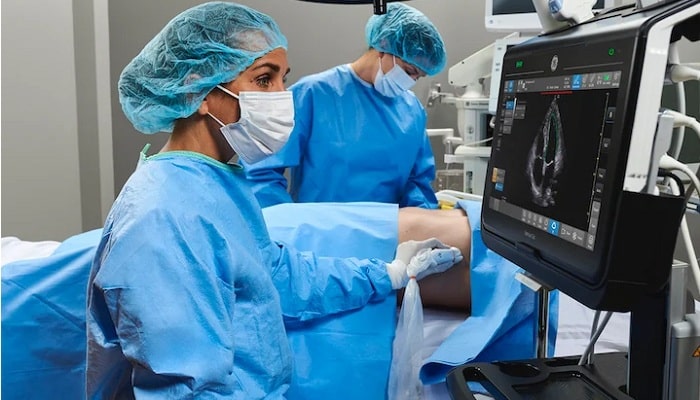QView Medical, a breast cancer detection pioneer and maker of the FDA-approved artificial intelligence (AI) software system for breast cancer screening, and GE Healthcare announced that QView’s QVCAD software can be launched on GE Healthcare’s Invenia™ ABUS 2.0 (Automated Breast Ultrasound), which has an open platform technology that allows the integration of third-party AI tools for the optimization of the reading workflow.
Invenia ABUS 2.0 is the first FDA-approved Ultrasound supplemental breast screening technology specifically designed for detecting cancer in dense breast tissue. The powerful AI Assistant leverages intelligent algorithms to assist in detecting breast lesions, helping physicians increase their reading speed with confidence.
Following years of development, QVCAD, which was previously connected to the Invenia ABUS 2.0 through an external PC and server, is now allowing clinicians to access the software through the Invenia ABUS Viewer, streamlining clinical workflow with reducing reading time by up to 33%1, while improving clinical outcomes with experience up to 93% sensitivity for lesion detection2.
Mammography misses one third of cancers in dense breasts3, and while supplemental screening finds more cancers, it requires reasonable callback and biopsy rates4. Dense breasts increase cancer risk by 4-6 times5, affecting more than 40 percent of women3. Early cancer detection is critical to increased survival rates and improved patient care and can reduce the cost of care6.
“ABUS combined with QVCAD provides the next crucial step in supplemental breast screening for women with dense breasts,” said Bob Wang, Chairman, and CEO of QView Medical.
Brian McEathron, Vice President, General Imaging Ultrasound at GE Healthcare, said, “Our goal is to support clinicians by enabling the timely, accurate diagnosis and treatment of cancer in dense breasts. The integration of QVCAD into the ABUS reading process is a breakthrough for streamlining workflow and enhancing clinical confidence. Identifying breast cancer at the earliest possible stage has important prognostic implications: a greater number of available treatment options, increased survival rates and an improved quality of life.”
QView supports the #AMIDENSE public health effort to raise awareness of breast density as a major risk factor.


















